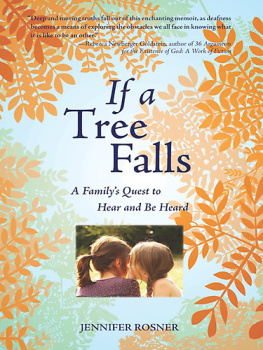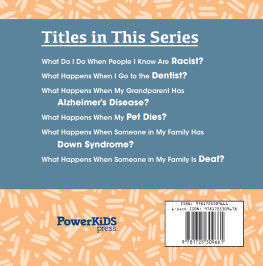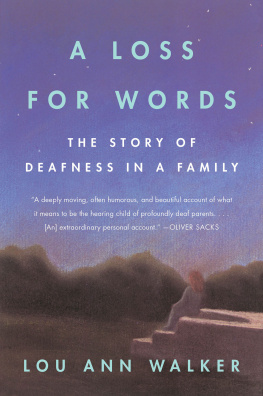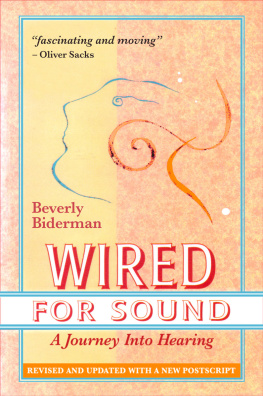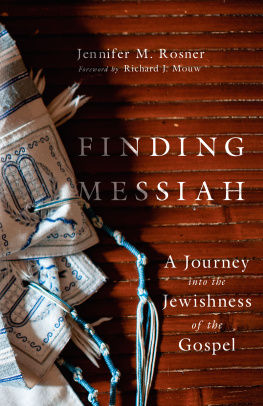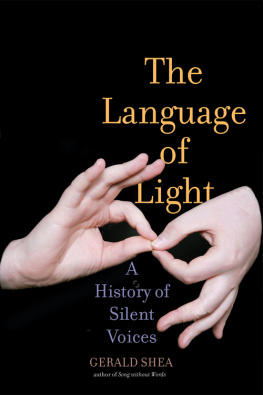Table of Contents
OTHER BOOKS IN THE REUBEN/RIFKIN SERIES
Arguing with the Storm: Stories by Yiddish Women Writers
edited by Rhea Tregbov
Dearest Anne: A Tale of Impossible Love
by Judith Katzir
Dream Homes: From Cairo to Katrina, an Exiles Journey
by Joyce Zonana
Shalom India Housing Society
by Esther David
The Reuben/Rifkin Jewish Women Writers Series A joint project of the Hadassah-Brandeis Institute and the Feminist Press
Series editors: Elaine Reuben, Shulamit Reinharz, Gloria Jacobs
The Reuben/Rifkin Jewish Women Writers Series, established in 2006 by Elaine Reuben, honors her parents, Albert G. and Sara I. Reuben. It remembers her grandparents, Susie Green and Harry Reuben, Bessie Goldberg and David Rifkin, known to their parents by Yiddish names, and recalls family on several continents, many of whose names and particular stories are now lost. Literary works in this series, embodying and connecting varieties of Jewish experiences, will speak for them, as well, in the years to come.
Founded in 1997, the Hadassah-Brandeis Institute (HBI), whose generous grants also sponsor this series, develops fresh ways of thinking about Jews and gender worldwide by producing and promoting scholarly research and artistic projects. Brandeis professors Shulamit Reinharz and Sylvia Barack Fishman are the founding director and codirector, respectively, of HBI.

For Bill,
Sophia, and Juliet
In this book I follow the convention whereby audiological deafness is spelled with a lowercase d, to distinguish it from Deafness with an uppercase D, a reference to the culture and community of those with fluency in sign language.
Prologue
FOR A LONG TIME, I thought this story began with my daughters birth, or just a few hours later, when we learned that she might not hear. But the question of not hearing began long before her, before me.
A string, fragile and thin, a cilia strand, a helix, twists its way back in time to Brooklyn, New York, and before that, to tiny shtetls, specks on the maps of Eastern Europe. For generations, the line has been frayed and tattered.
But I am told that at one time, a cord gently linked our wrists so that we would wake together. Our hands clasped and our arms twined, thick as a seamans rope.
And we could hear.
And we could listen.
California, July 2000
I WAS CALM WITH OUR NEWBORN BABY GIRL nestled in the crook of my arm. I hadnt expected to be calm in new motherhood. Yet, here I was with Sophia. Soaked and happy. Anchored by her gaze.
We had arrived at the hospital to find a nursing strike in full force. Our doctor, whod assured us that he had no plans to travel in July, was away on vacation. We were settled into a labor room by a strikebreaker scanning the room for sterile gloves and fetal heart-rate monitors.
Bill got hold of a birthing ball and a cup of ice chips, and sought to soothe me with reminiscences of the day we conceived. It was Halloween morning and we had been trying to conceive for fourteen months. Bill proclaimed to me, with prophetic sureness: YOU are getting pregnant today. We had a houseguest, but Bill just handed him the dog leash and a shopping list of assorted candy and ushered him out the door.
Now, nine months later, here was our girl, swaddled and warm, with wispy brown hair and huge slate eyes. Sophia.
Shoulder to shoulder with Bill in our narrow hospital bed, I lost myself in the chub of Sophias feet and the translucent pink of her toenails as she dozed off to sleep. I hardly noticed the beeping monitors, the flurry and rush of nurses, the ring ring of the telephone. I was in a bubble, impervious to our surroundings. I had experienced this insulation only once before in my lifetime, when Bill and I stood together beneath our wedding chuppah, alight in a Septembers sunset six years earlier. My attention fixed only on himhis peacock blue eyes flickering in the candlelight, his sure voice, his vows, riding softly on the night airuntil the shatter of glass brought forth the cheers of family and friends, Bills lips to mine.
I was jarred out of our new magic when a hospital volunteer with a red and white polka-dotted hat wheeled in a computer cart and prepared to run the newborn hearing test. Unapologetically, she swabbed Sophias forehead and applied electrodes in four places. Sophia stirred in sleep, but did not wake. Stepping gingerly around the computer wires, the volunteer came to stand at the keyboard, pushing keys and then waiting, staring at the monitor. Nurses had already been in and out for heel sticks, eye drops, immunizations, a vitamin K shot. I continued to gaze at Sophia. She was all olive, rose, and brilliant slate gray, her features still mushy like a newborn pups.
I glanced over at Bill to see if he noticed the way Sophias lips pouted. I was surprised to find his face sallow. He was up, questioning the volunteer about the numbers that appeared on the screen. His stare alternated between Sophia and the computer monitor.
What are the typical scores for this test? Bill asked.
The numbers are usually in the hundreds, the volunteer mumbled almost inaudibly.
I sat up and gaped at the tiny white numbers, dwarfed by the hulking black monitor: 4... 7... 3.
Soph, youre not exactly setting the world on fire. Bills voice was thin.
Bill, whats going on?
Come on , Sophia.
The volunteer shifted her weight, staring at us awkwardly. Then she walked over to Sophia, removed the electrodes, and gently wiped the goo from Sophias hairline. She stuffed the tangle of cords on a low tray, switched off the computer screen, and guided the computer cart, backward, out of the room.
An audiologist came in five minutes later. Ive been notified that Sophia didnt pass the hearing screen, but remember, your baby has been underwater for nine months, she said in a reassuring voice. She went on to explain that residual amniotic fluid or a bacterial infection may have caused Sophia to fail the screening test. Statistics were in our favor: twenty-six of thirty babies who fail the initial test pass it two weeks later. Only a small number turn out to be hard of hearing or deaf.
I sat, silent, with Sophia curled in my lap.
The bright sunlight beamed through the thick hospital window. I had just finished my doctorate in philosophy, but lacked the philosophical tools to deal with this. My baby could be hard of hearing or deaf? How was this possible? Like all expectant mothers, I had harbored fears for my baby, choking down prenatal vitamins the size of horse pills and eating platefuls of kale to ward off the numerous maladies catalogued in the pregnancy books. But deafness ? Id had no reason to consider it. Now, despairing passages flashed through my head: Aristotles notorious claim that the deaf, incapable of speech, are incapable of reason. Immanuel Kants view that the Dumb (the mute) can never be full-fledged persons. The categorization, in Jewish law, of deaf mutes as forever childlike. I knew these conceptions were outdated, from another, less generous time, but they eroded my spirit anyway, and dreams I didnt realize I carrieddreams full of a childs chatter and songbegan to wither deep inside.
The audiologist broke into my pained muddle with a pragmatism that was strangely comforting. I cant have any idea what this must be like for you. I dont have a baby, never mind a baby that might be deaf. She went on to take down our history, asking if there was anyone with hearing problems in our families.
My mother. My mother had substantial hearing loss. She had worn hearing aids all of my life. They whistled and never seemed to work very well. But so far as I knew, my mother wasnt born with her hearing problemshe lost her hearing after a series of mastoid infections and surgeries. It wasnt genetic. I told the audiologist what I knew of my mothers history.
Next page
